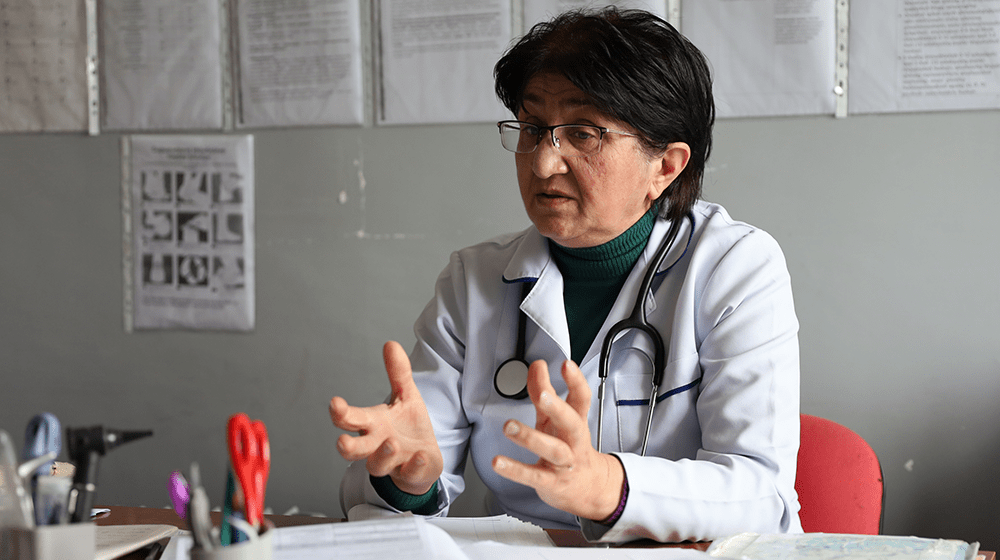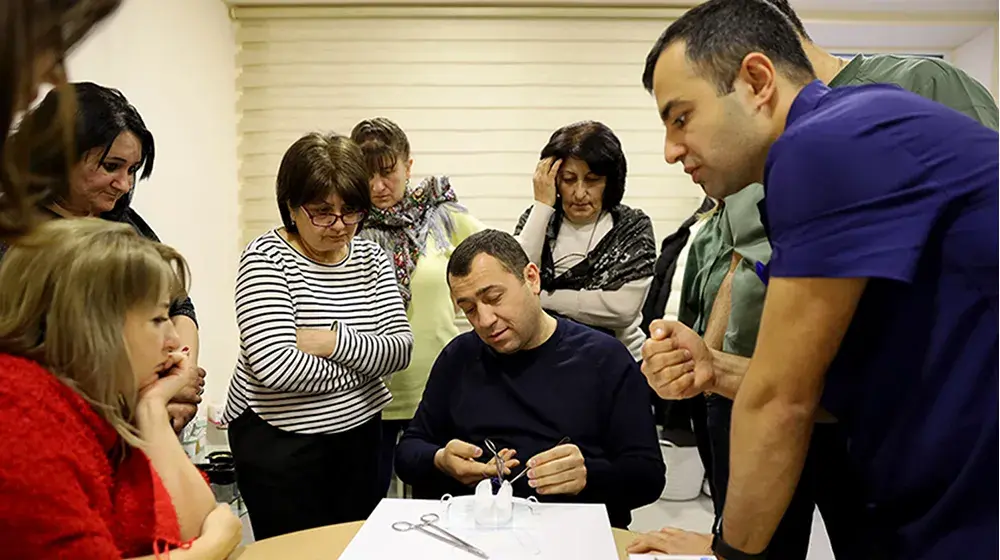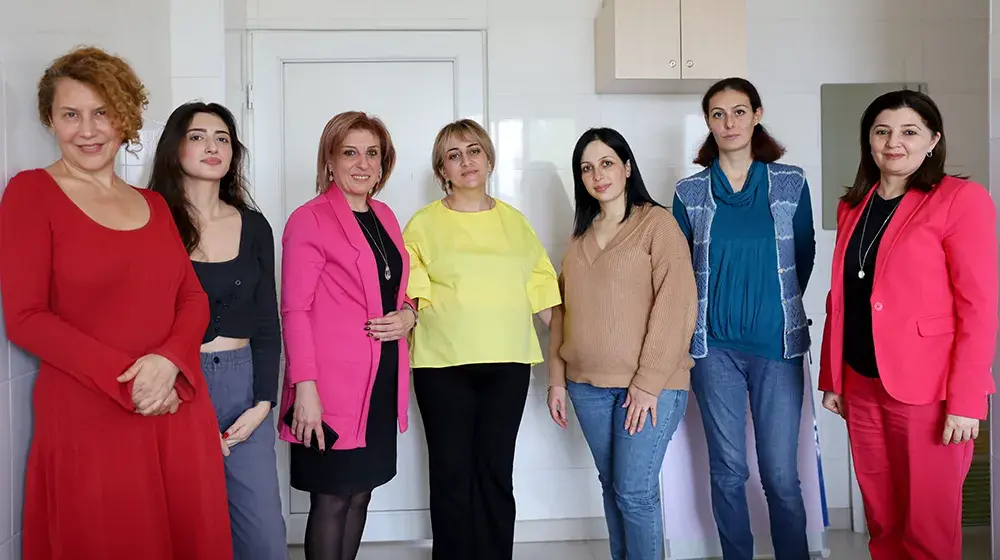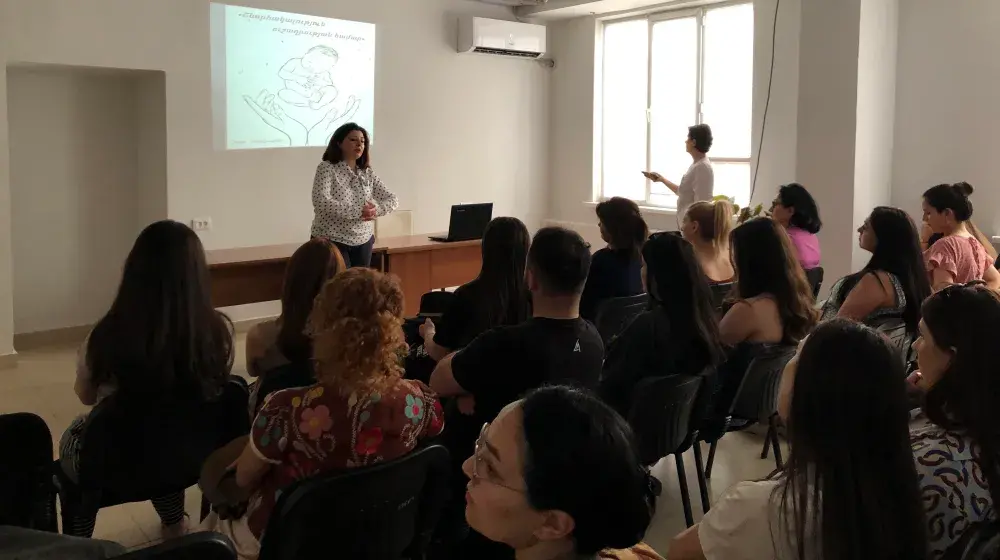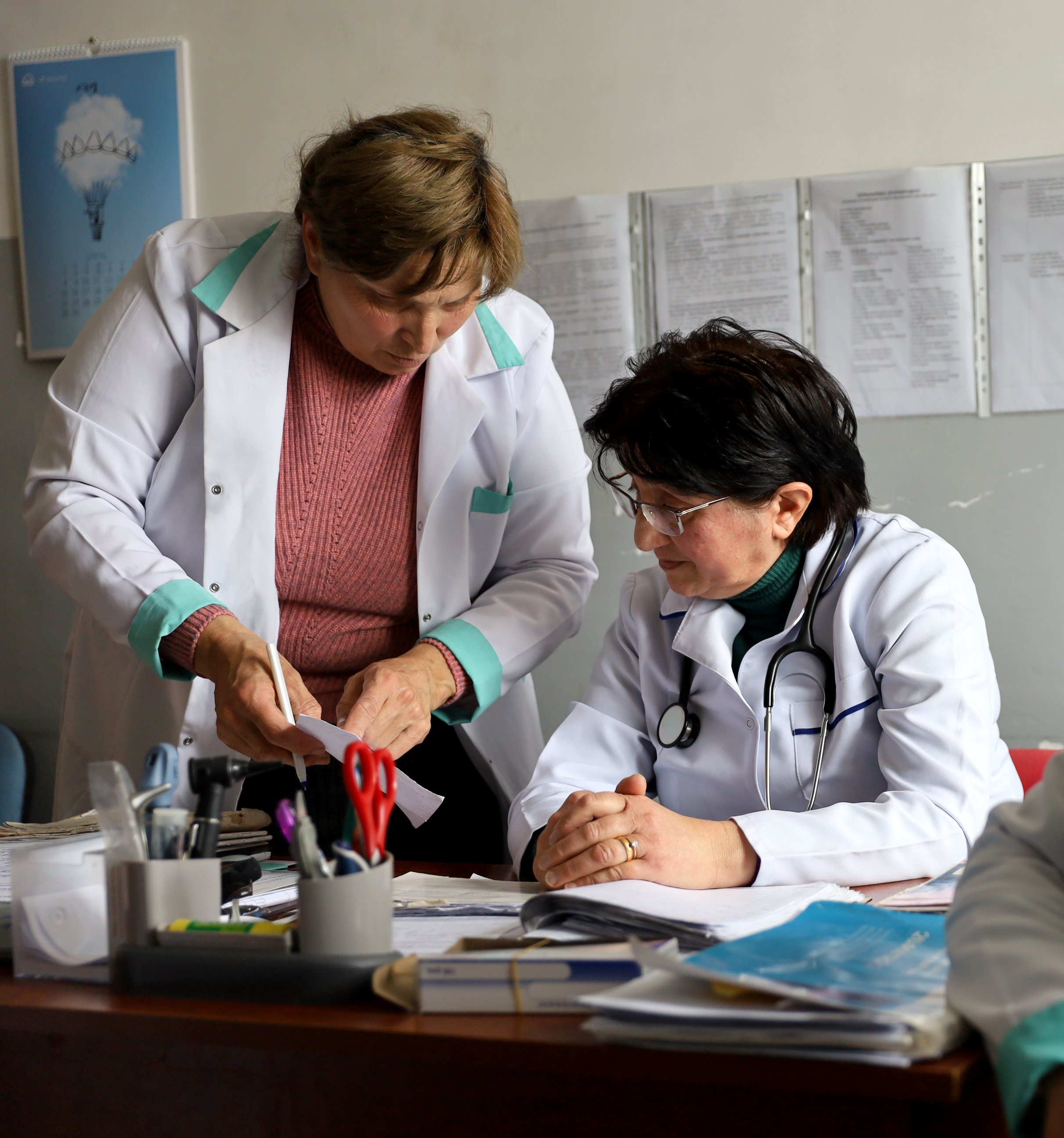
"Doctor, would you please look at the results of the analysis?" "...write the prescription without delay..." "...the hemoglobin levels are normal, so there's no need to worry..." "Doctor, how should we proceed with Lyova's case?" This is how a typical working day unfolds for family doctor Lusine Rostomyan. Although the day had already split, the workload hasn't eased.
"It's still a bit quiet today," Dr. Rostomyan remarks with a smile. With her calm and caring approach, she responds to all the questions and sees off the last visitors of the day, managing also to allocate time for our questions. "Normally, we receive 20-25 visitors per day, and despite the busy schedule, we approach our work with love. This place has become our second home."
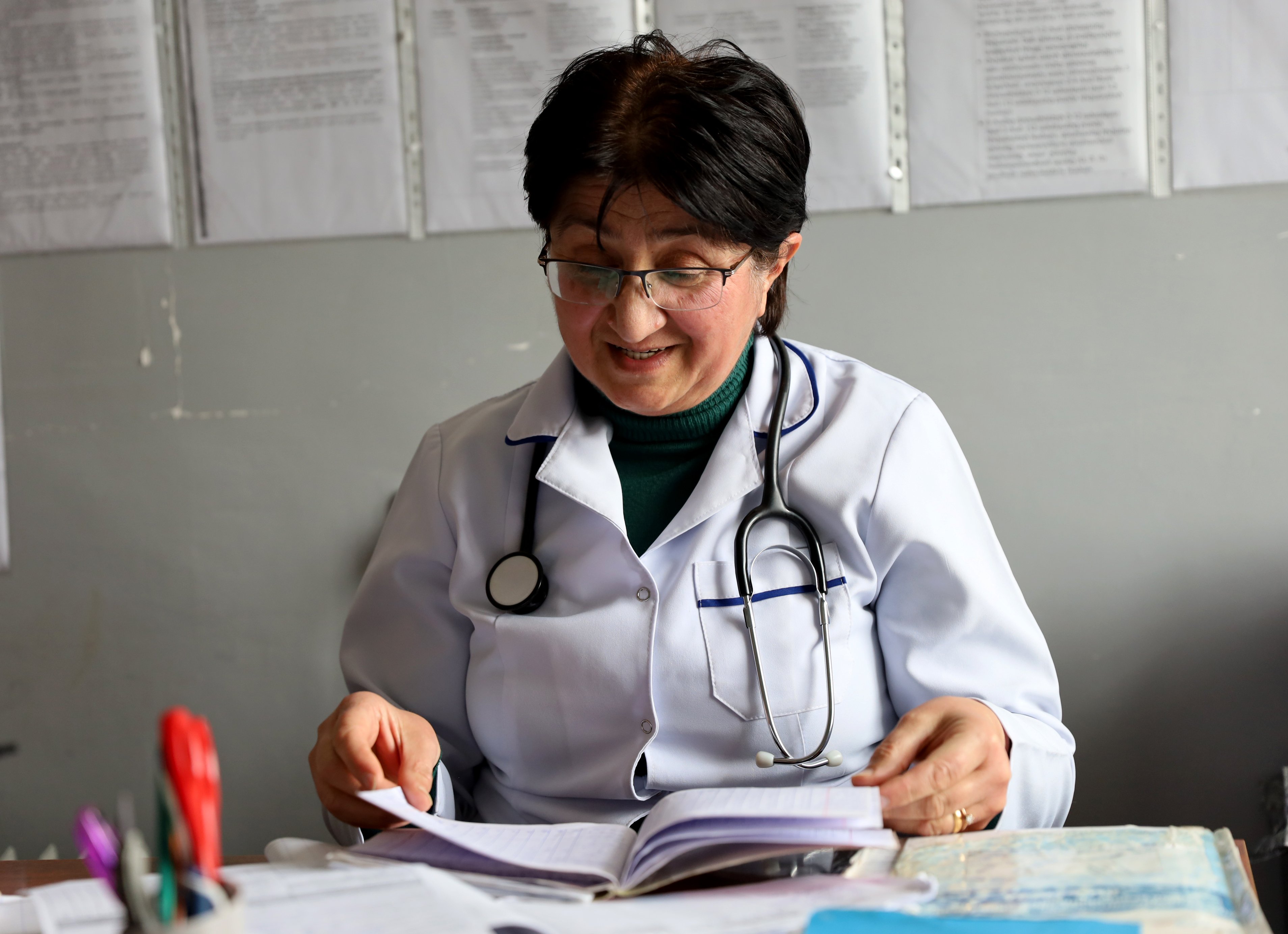
Lusine Rostomyan is from Yerevan, a pediatrician by profession. In the 2000s, she and her husband bought a country cottage for her parents-in-law in Gegharkunik marz. When the locals heard that she was a doctor, they offered her to move to the region and work there.
"I consulted with my husband, and we decided to move here. We've been living here for over 20 years now. Initially, it was challenging, but now both the community and my colleagues have become dear to me," says Dr. Rostomyan, who settled in Gegharkunik with her husband and five children. Initially, she worked as a pediatrician and later, after completing trainings, she became certified as a family doctor. Since 2001, she has also served as the director of Geghamasar Primary Healthcare Center, which serves eight communities.
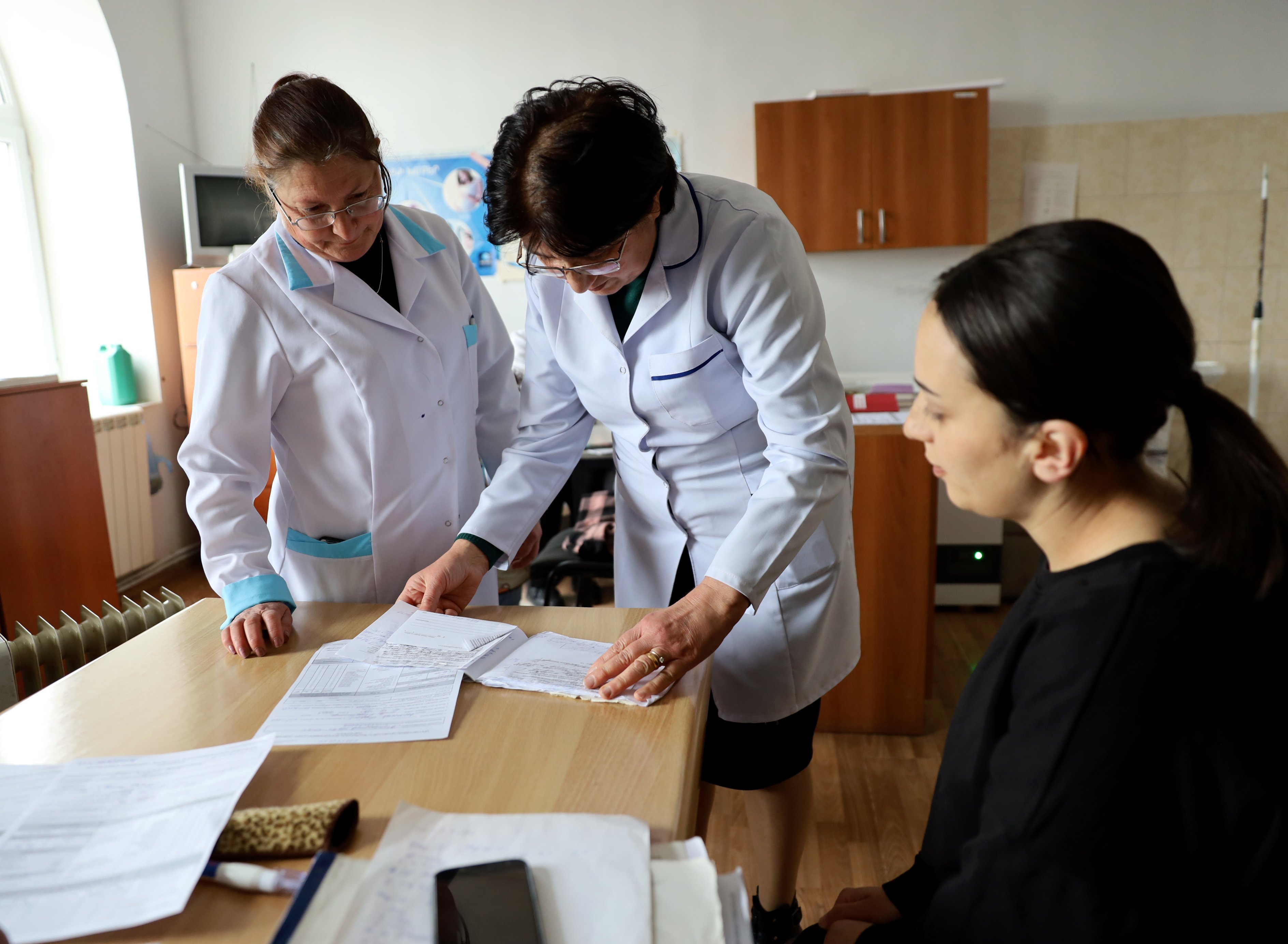
Dr. Rostomyan treats all visitors with exceptional care.
"Our doctor's attentiveness and punctuality are exceptional; patients prefer not to seek care elsewhere... We even have people who have moved to Abovyan, but they still come here for advice, ask their questions, and leave. A kind word, a good advice is often more effective than any medicine," the nurses add.
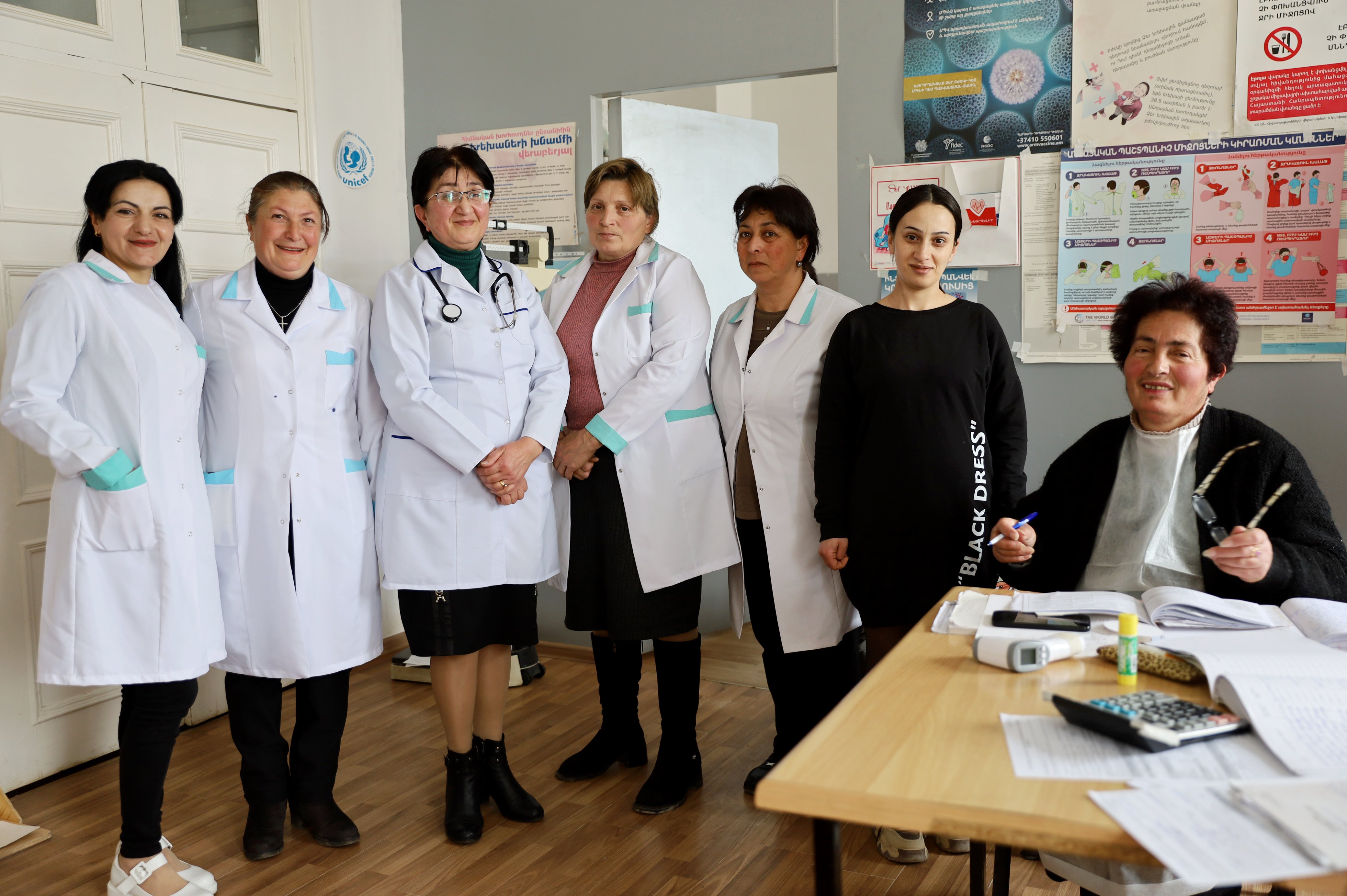
During our visit, one of the patients came for her regular check-up. She was pregnant, waiting for her second baby.
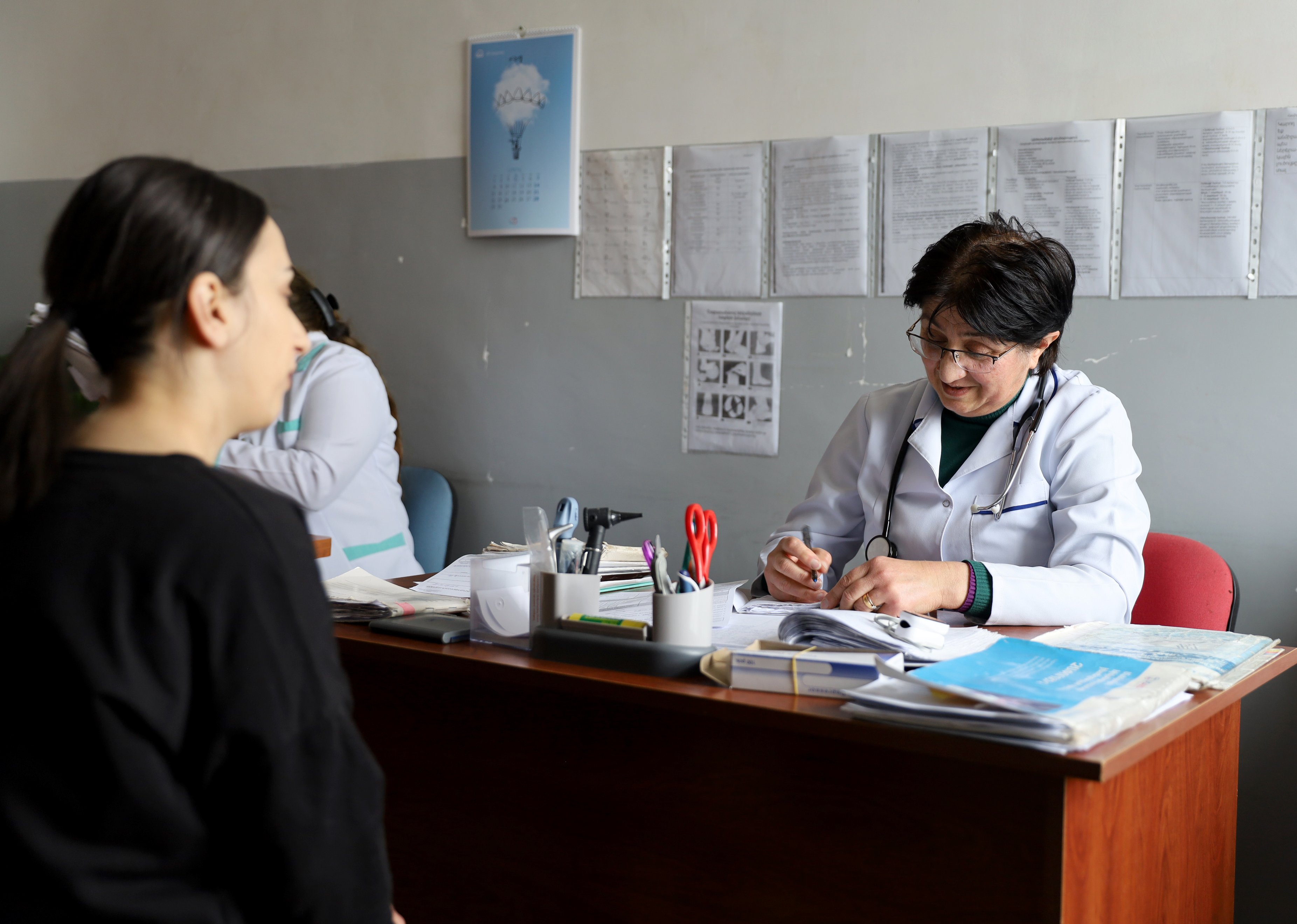
"We monitor the progress of the pregnancy, but obstetrician-gynecologists in Vardenis manage the pregnancies. The check-ups are conducted there," says Dr. Rostomyan, adding that they currently have 16 pregnant women. "We strive to support our women throughout their pregnancy, including the planning phase. Our advantage lies in the fact that each nurse is familiar with the population, social and psychological conditions, and culture of their respective villages, which makes our job easier. We conduct post-natal assessments, especially for those who deliver for the first time. These evaluations help us understand the psychological condition of our mothers."
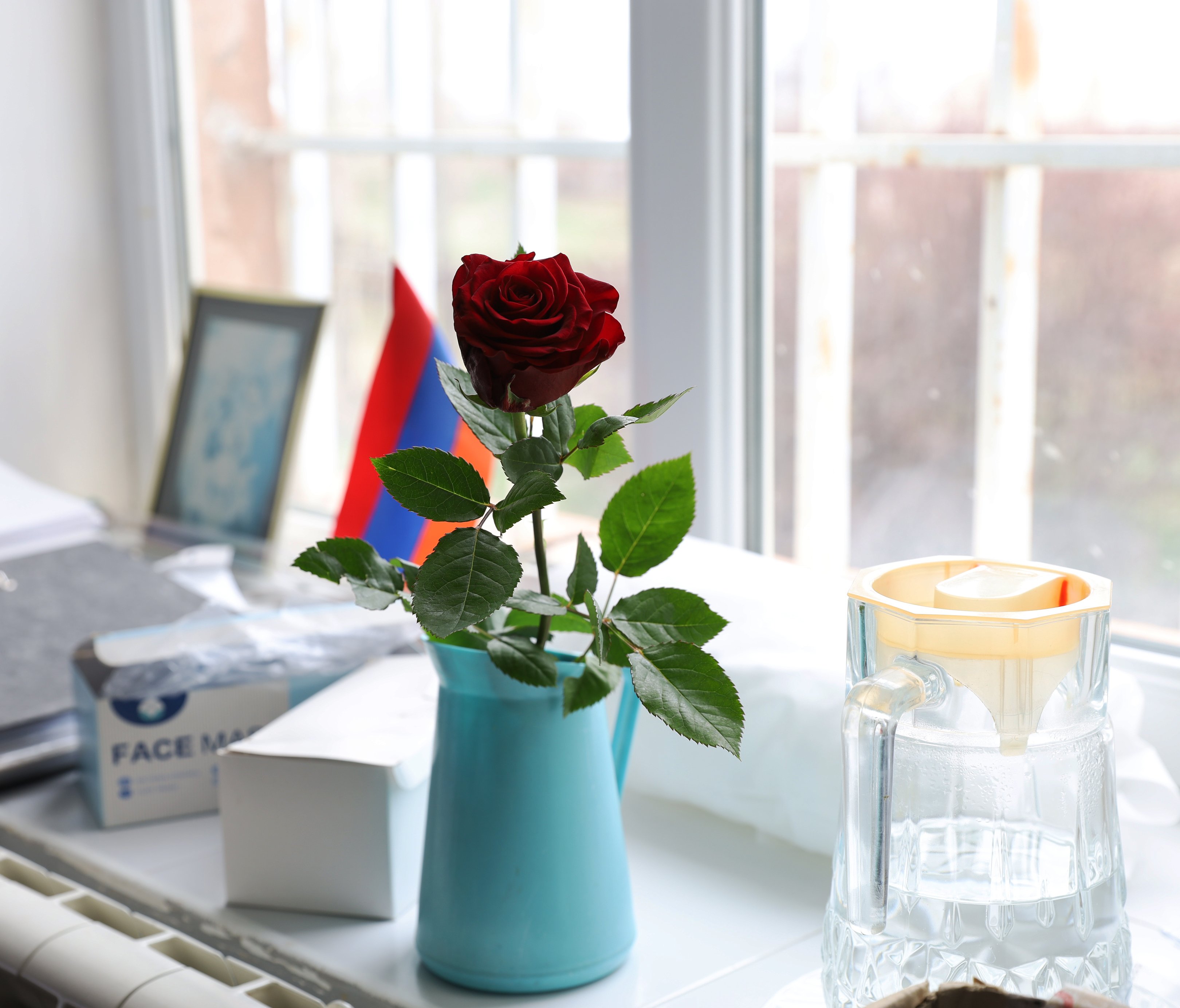
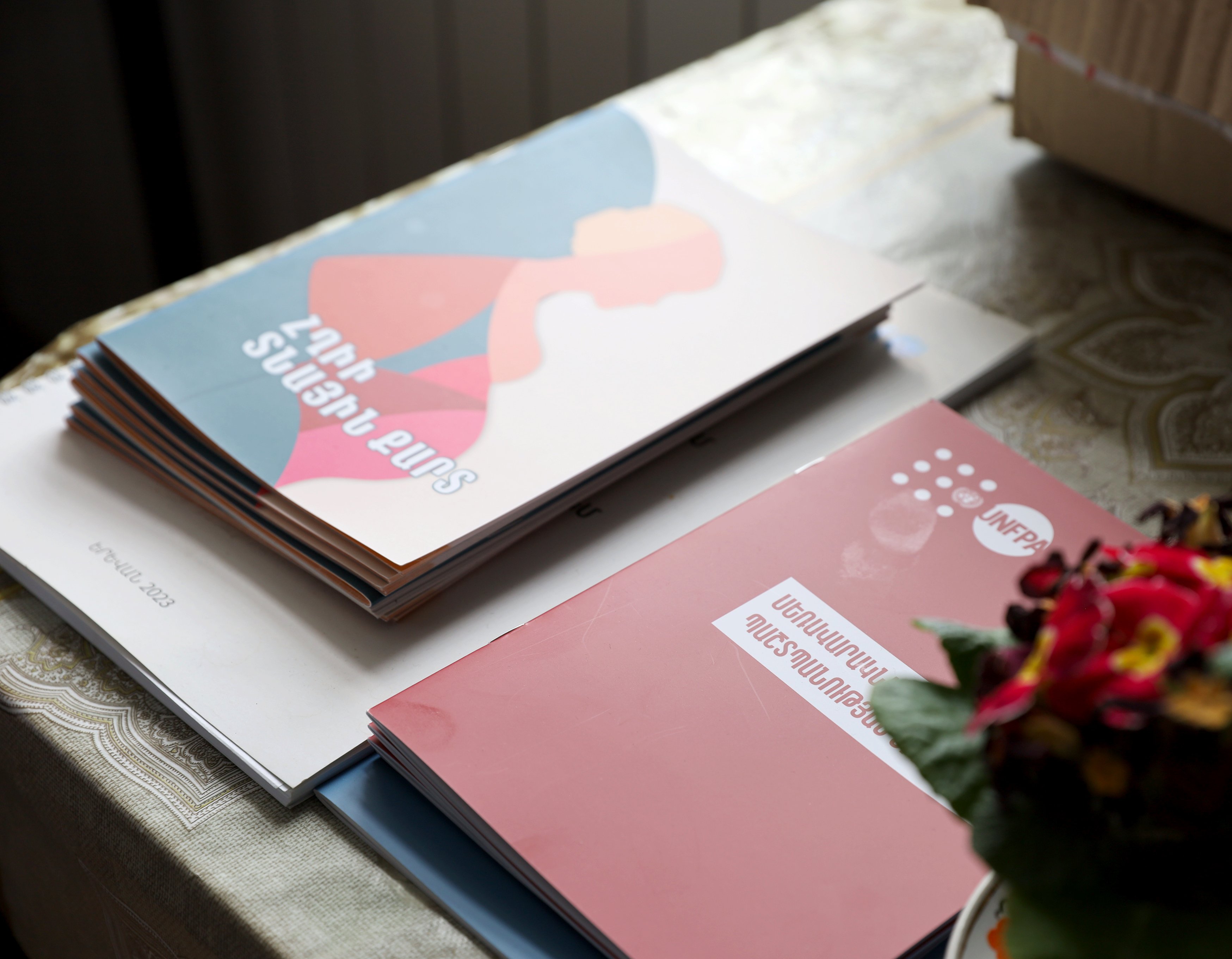
When discussing the community's needs, transportation emerges as a critical issue. "The villages are spread out, and there are challenges with communication and public transport between communities. Renting a car is often necessary to reach the villages. We've raised this issue, and hopefully, it will be addressed soon."
Despite her demanding schedule, Dr. Rostomyan prioritizes professional development opportunities. She recently participated in a training course on the Minimum Initial Services Package (MISP) for Sexual and Reproductive Health in Emergencies, initiated by the UNFPA.
"This training was a first-of-its-kind experience. We learned about the functioning of the MISP system and the importance of establishing a coordination body during emergencies. The first aid knowledge gained was also invaluable," Dr. Rostomyan explains. She underscores the importance of such initiatives, noting that they not only provide knowledge but also foster networking opportunities within the professional community. "These meetings allow us to exchange ideas and experiences. Sometimes, facing common challenges makes us feel that we are not alone (smiles). We maintain contact with each other and if there is an issue, we consult, pass on the doctor's contacts to the patient, etc."
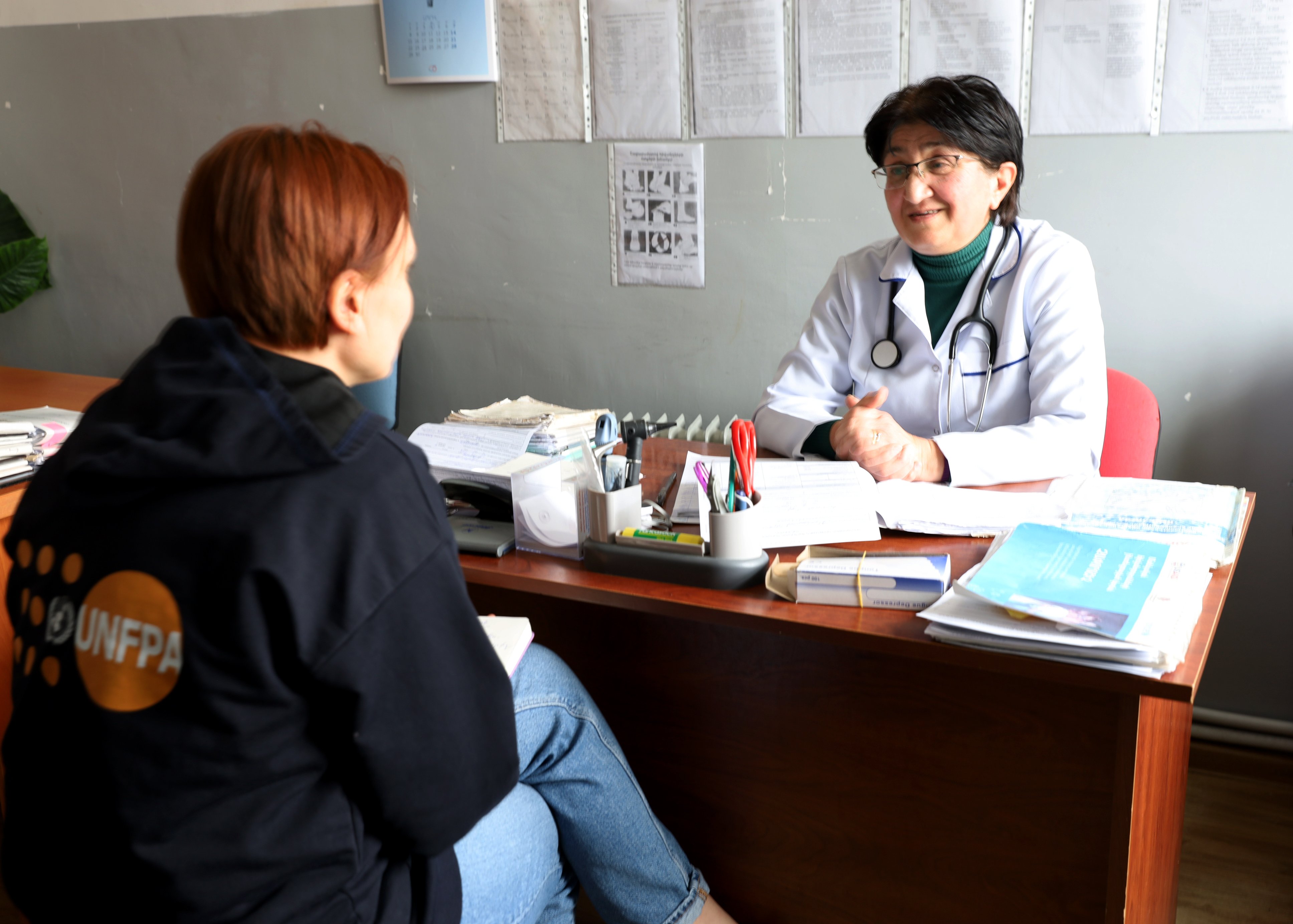
Dr. Rostomyan stresses the relevance of such training, especially in light of the current situation. "The seminar is particularly relevant. Unfortunately, in 2020, we hear gunshots, spending time in basements and parents haven’t heard from their children for months. The consequences of this conflict are still evident today, with increased stress, blood pressure, and neuroses, especially during the winter and spring. We strive to be as helpful as possible. It's beneficial that our nurses also participated in the MISP course, and we are on the same page and working as one team."
Community nurses Astghik from Norakert and Mariam from Areguny also attended the training.
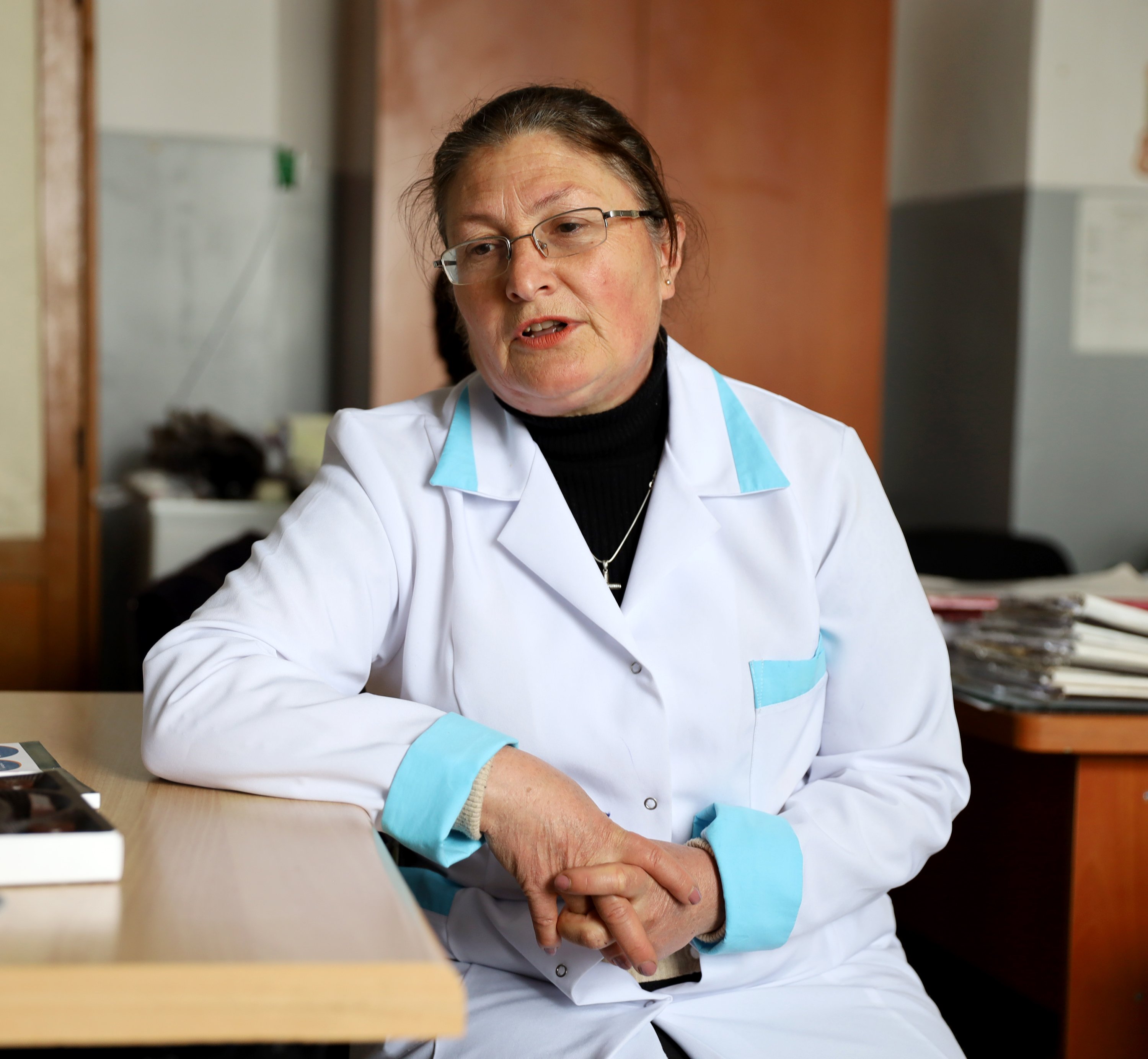
Astghik shares, "We learned how to respond to crisis situations and the initial steps to manage stress. We may even act as first responders, playing the role of a psychologist initially. We learned when and which specialists to involve and how to refer cases. Additionally, we received knowlege on HIV/AIDS, managing unwanted pregnancies, post-violence care, and updates on new medications and vaccinations."
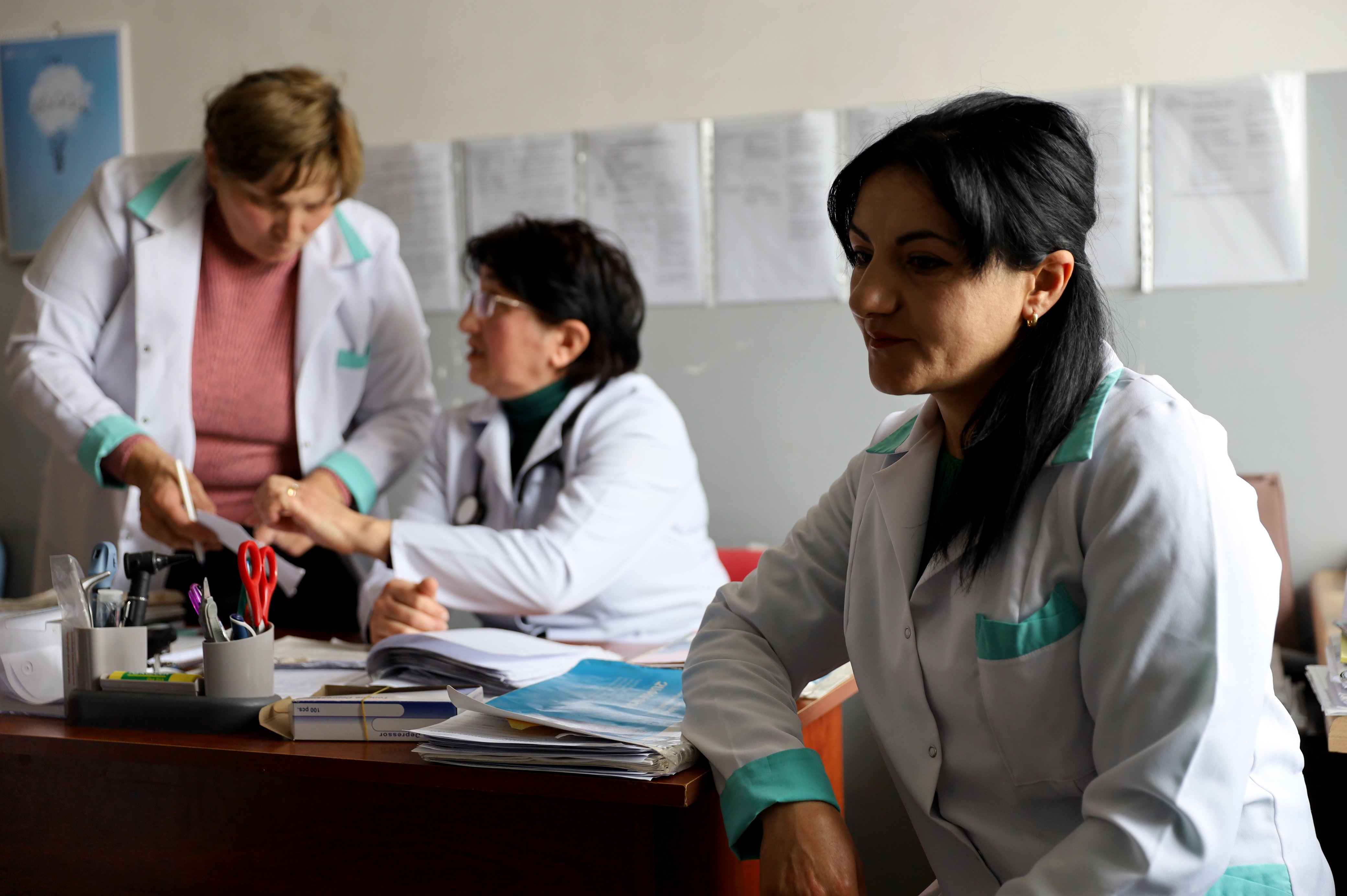
Mariam adds, "We also learned the importance of maintaining mental health during emergencies. While we may also feel emotional during such situations, we learned how to manage ourselves so that patients see us as reliable and capable of helping them."
MISP training was initiated by UNFPA in partnership with the Ministry of Helath of the RA. The trainings were delivered by "ARNAP" (DRR National Platform) Foundation. The training aims to prevent morbidity, mortality, and disability among affected populations during humanitarian crises. In 2023, more than two hundred medical workers participated in the course. This year, courses are also planned for about a hundred medical workers. Emphasizing the importance and necessity of these courses, especially given the current situation in the Armenian healthcare system, the Ministry of Health of the Republic of Armenia awards appropriate continuous medical education (CME) credits to healthcare workers who completed the training.

